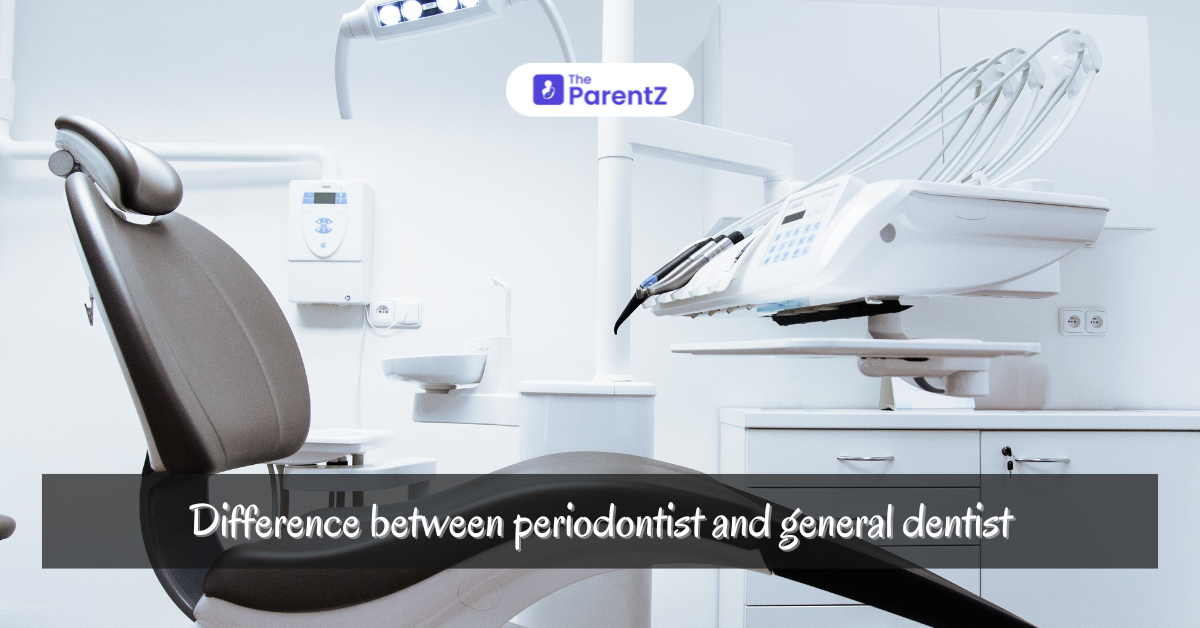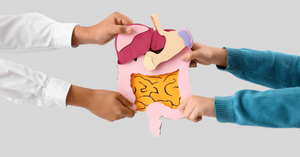When it comes to maintaining your child’s oral health, choosing the right dental care provider is crucial. You may already be familiar with a general dentist, who handles routine check-ups, fillings, and cleanings. But did you know that a periodontist specializes in the health of the gums and supporting structures around the teeth? Understanding the difference between a general dentist and a periodontist, and knowing when to seek specialized care, can make a big difference in your child’s dental hygiene and overall health.
What Is a General Dentist?
A general dentist is a dental professional who provides a wide range of services to promote and maintain oral health. They are often the first point of contact for your child’s dental needs. General dentists handle routine dental procedures like:
- Cleanings and Check-ups: General dentists provide routine cleanings and preventive care, ensuring that teeth stay free from plaque and cavities.
- Fillings and Sealants: For children with cavities or those at risk of decay, general dentists can apply fillings and sealants to protect the teeth.
- Oral Health Education: A general dentist teaches children the basics of good oral hygiene, including brushing, flossing, and dietary tips to prevent tooth decay.
What Is a Periodontist?
A periodontist is a dental specialist who focuses on preventing, diagnosing, and treating gum disease, as well as other conditions affecting the soft tissues and bone around the teeth. While general dentists handle a broad range of oral health issues, periodontists receive additional training to specialize in gum health. Their areas of expertise include:
- Gum Disease Treatment: Periodontists treat both early and advanced stages of gum disease (gingivitis and periodontitis) through non-surgical and surgical methods.
- Dental Implants: If a child needs to replace missing teeth, periodontists are experts in the placement of dental implants.
- Bone and Tissue Grafting: Periodontists are skilled in procedures like bone grafting and soft tissue grafting to restore lost bone or gum tissue.
Differences in clinical practice between a General Dentist and a Periodontist:
1.Routine Care vs Specialized Treatment:
•General Dentist: Focuses on routine dental care such as cleanings, fillings, and cavity treatments. Provides broad dental services aimed at maintaining overall oral health.
•Periodontist: Specializes in treating complex periodontal issues, particularly gum disease and bone loss around the teeth. Focuses on conditions that affect the supporting structures of the teeth.
2.Examinations:
•General Dentist: Performs regular oral examinations, assessing teeth, gums, and overall mouth health. Identifies general issues like cavities, minor gum inflammation, and plaque buildup.
•Periodontist: Conducts more in-depth examinations, particularly focusing on gum recession, pocket depth measurements, and bone health, often using advanced diagnostic tools to assess periodontal disease.
3.Preventive Measures:
•General Dentist: Provides preventive care such as fluoride treatments, sealants, and regular cleanings to avoid dental decay and mild gum issues.
•Periodontist: Specializes in preventing and controlling gum diseases by focusing on deep cleanings, scaling and root planing, and recommending advanced oral hygiene techniques.
4.Gum Disease Management:
•General Dentist: Manages early stages of gum disease (gingivitis) through non-invasive treatments like regular cleanings and improved oral hygiene instructions.
•Periodontist: Treats advanced stages of gum disease (periodontitis) with more invasive and specialized procedures, including scaling and root planing, pocket reduction, and gum grafts.
5.Surgical Procedures:
•General Dentist: Performs basic, non-surgical extractions and minor gum treatments, but generally does not handle complex oral surgeries.
•Periodontist: Conducts surgical procedures such as gum grafting, bone grafting, flap surgery, and dental implant placement, which require specialized surgical expertise.
6.Dental Implants:
•General Dentist: May place dental implants in straightforward cases where bone and tissue conditions are healthy and uncomplicated.
•Periodontist: Often performs dental implant surgeries in complex cases where bone regeneration, gum grafting, or additional supportive treatments are needed.
7.Technology and Equipment:
•General Dentist: Uses standard dental tools and X-rays for general diagnostics and treatment.
•Periodontist: Utilizes advanced technology such as digital imaging, laser therapy, cone beam CT scans, and specialized instruments for detailed gum and bone assessments and treatments.
8.Long-Term Care and Monitoring:
•General Dentist: Monitors general oral health and addresses a wide range of dental needs over time.
•Periodontist: Provides long-term care for patients with chronic gum disease, monitoring progression and performing maintenance procedures like periodontal cleanings and surgeries.
9.Referral vs. Specialized Patient Care:
•General Dentist: Refers patients with advanced periodontal issues to a periodontist for further specialized care.
•Periodontist: Often works in collaboration with general dentists, focusing specifically on patients referred for periodontal treatment or implant placement.
How Can a Periodontist Benefit a Child's Dental Hygiene?
While it may seem that periodontists primarily treat adults with gum disease, children can also benefit from their specialized care, particularly when it comes to the prevention of periodontal issues. Here’s how a periodontist can enhance your child’s dental hygiene:
1. Prevention of Gum Disease: Even children can develop early signs of gum disease, especially if they have poor oral hygiene or genetic predispositions. A periodontist can identify these signs early and provide treatments to prevent the disease from progressing.
2. Treatment of Gummy Smiles: Some children may have excess gum tissue covering their teeth, leading to a “gummy smile.” A periodontist can perform procedures to remove excess gum tissue, improving the appearance of the smile and promoting healthier teeth.
3. Monitoring Orthodontic Health: Children who wear braces can experience changes in their gums due to the pressure braces place on teeth. A periodontist can monitor gum health and ensure that no periodontal issues develop during orthodontic treatment.
4. Education on Oral Hygiene: Periodontists provide specialized education on maintaining gum health, teaching children proper brushing and flossing techniques that protect not only their teeth but also their gums.
When Should You See a Periodontist for Your Child?
Although your child’s general dentist can manage most dental issues, there are certain circumstances where seeing a periodontist is advisable:
- Signs of Gum Disease: If your child has swollen, bleeding gums, or persistent bad breath, they may be showing early signs of gum disease, which requires specialized treatment from a periodontist.
- Orthodontic Treatment: If your child is undergoing orthodontic treatment, a periodontist can help ensure that their gums remain healthy during the process.
- Family History of Gum Disease: If gum disease runs in your family, your child may be at a higher risk. A periodontist can provide preventive care to help avoid future issues.
Conclusion
Both general dentists and periodontists play key roles in maintaining your child’s oral health, but they have different areas of expertise. While a general dentist provides comprehensive care for everyday dental needs, a periodontist offers specialized treatment for gums, soft tissues, and supporting structures. By understanding the difference and knowing when to seek specialized care, you can ensure that your child receives the best possible dental treatment to promote a lifetime of healthy smiles.









Be the first one to comment on this story.